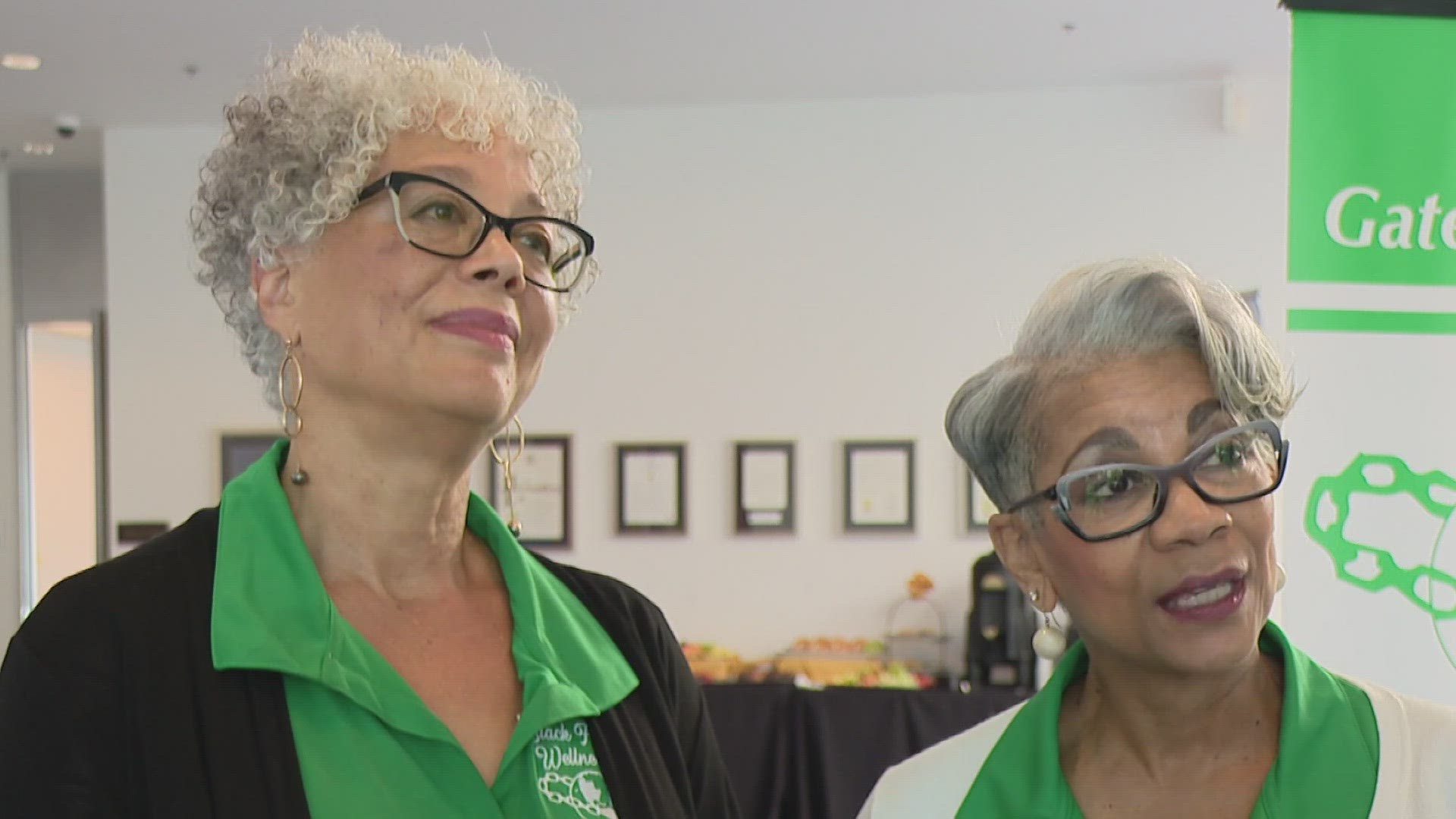ST. LOUIS — To address health conditions that disproportionately affect certain communities, a vibrant community health fair took center stage at the Early Childhood Development Center at Harris-Stowe State University this past Saturday.
The event, organized by The Gateway and The Archway Chapters of the Links Inc., was designed to ensure that all communities receive the necessary resources to combat health challenges effectively.
Trina Williams, accompanied by her daughter Chayah Hill, shared her family's history of chronic kidney disease, high blood pressure and diabetes.
Hill emphasized the importance of lifestyle changes in managing these conditions, saying, "I'm eating way differently from how I used to eat in my childhood. It's drastically different. Like I don't eat much red meat, cut out junk food, not eating sugar. So really just staying healthy."
The Black Wellness Expo featured health and wellness vendors offering essential information and services. That included chronic kidney disease; hypertension; diabetes; heart health; blood donations; organ/tissue donor awareness; breast and prostate cancer awareness; dental health; mental health awareness; caregiver resources; anti-bullying and physical fitness. Additionally, the event facilitated voter sign-ups to advocate against health inequities, highlighting the importance of community engagement in addressing systemic health challenges.
A panel discussion featured survivors sharing their stories, shedding light on the impact of chronic kidney disease, a condition that disproportionately affects African American communities. According to the Kidney Foundation, Black individuals are more than three times as likely to have chronic kidney disease.
Stacy Edwards, president of the Gateway Illinois chapter of Links Inc., emphasized the intergenerational approach of the event, saying, "This is one reason this is a family wellness expo. If we could get even three generations, that would be good. Mother, daughter, granddaughter."
Lauren Mind, president of the Missouri chapter, underscored the importance of education and awareness in managing health risks, saying, "We want to bring the word to people. We want to educate them, make them aware of the risk so they can take charge and manage their health."
For attendees like Chayah Hill, the event was informative and inspiring. Reflecting on the presence of Black medical professionals, Hill said, "It was eye-opening to see all the Black doctors on the panel and see so many of my people educated in the medical field, especially since I want to be a doctor myself."
In addition to valuable information, the health fair provided over 50 free health screenings, ensuring that essential healthcare services reached those who need them most. The event exemplified a community-driven approach to addressing health disparities, fostering a proactive health management and empowerment culture.
As communities continue to confront systemic health challenges, initiatives like the Community Health Fair serve as vital platforms for education, advocacy, and access to resources, ultimately working towards a healthier and more equitable future for all.

